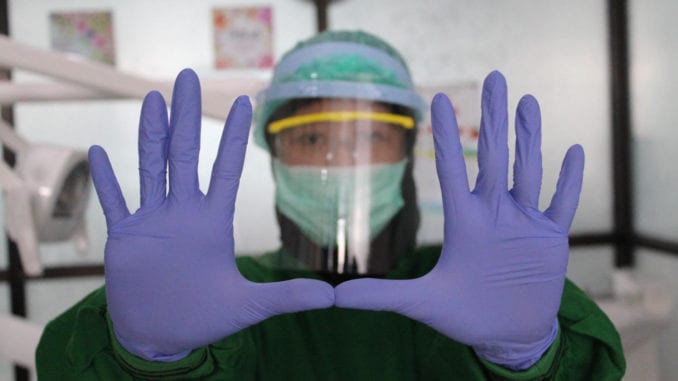
Everyday, there are millions of healthcare professionals working around the clock to help keep us safe. It is even more so during the COVID-19 pandemic. I recently interviewed Mihaela Stoita, a registered nurse who works especially hard to keep her patients and her family safe. This interview provided a lot of interesting information about what our healthcare workers have to go through on a daily basis to keep us safe and healthy. From making sure they have all the proper protective equipment, to coming in direct contact with COVID patients, to staying in isolation from their families, these people are our true heroes.
Where do you work?
“I work at the Oakville Trafalgar Memorial Hospital in the Acute Respirology Unit.”
How do you feel while on your way to work in these especially difficult times?
“I don’t feel much different than I did before all of this started. I do feel just a bit more anxious than before, because I know I will find more sick people there. There’s also the stress of being extra careful with how you put on and take off your protective equipment, and the fact that you have to be very alert and quick with any decisions you need to make. Things can change from minute to minute, and from hour to hour.”
Describe your current work environment.
“As I mentioned before, I work in the Respirology Unit where in the beginning there were patients who were suffering from other medical issues alongside the few there who were infected at the time. But as cases began to rise, we did not want the non-infected patients to catch the virus, so we transferred them to a different unit. Now, my unit only has patients with COVID, and the nurses who work in the units where the non-COVID patients were transferred to have to be trained to handle the equipment and those patients’ needs.”
What is currently the most challenging aspect of being on the frontline?
“Keeping my patients, my family, and myself safe. Everytime I go to work, I wash up and change into different clothes. I do the same thing when I arrive at home. At home, I stay in isolation, in a separate room and bathroom where not even my dog is allowed. Like most of my other colleagues, I’ve been in isolation since I first began to come into contact with COVID patients. I once showed symptoms of the virus, (but tested negative) and it just seemed dangerous not to isolate myself from the rest of my family.”
Right now, hospitals are undergoing many changes to adapt to this current situation. What do these changes look like, and how have they impacted you?
“The hospital has reduced its entrances to only one entrance open to patients, and two open to healthcare workers. At the entrance, the person undergoes a screening. If you fail the screening, you cannot enter the hospital. When I was showing symptoms of the virus, I could not return to work until my test came back negative.”
What does a typical day at work look like for you right now?
“It’s not very different than before, just different patients. Some worse than others. Because I have to train the people working in the units where my non-COVID patients were transferred, it is much more populated than usual. There is definitely more tension in the air. We have to monitor most patients who are all hooked on monitors, and all the healthcare workers need to make sure they are wearing the proper protection equipment.”
What kind of protective equipment do you have to wear?
“The necessary equipment is always changing as is the situation, but I usually wear a gown, a mask, gloves, a cap, a face shield, and shoe protectors. For some procedures that produce aerosols, we need to wear special N95 masks. You really have to know when to use the special equipment and masks.”
How are you coping with the elevated levels of stress that come with being on the frontline?
“I talk to my colleagues who are going through the same thing as me. I also like to do Yoga at home. Otherwise, I rest, read, watch Netflix, and talk to my friends.”
Right now, what is the hardest part of being a nurse?
“It’s not hard necessarily. It’s just that you want to be there for your patients, and there are cases where they become in critical condition and need to be transferred to the ICU. Then you can find out that they have passed away, which is extremely sad. If anything is hard, it’s the whole unknown of the situation.”
How do you feel upon leaving work each day?
“Everytime I leave, I reflect on my day, but I try not to take too much of it home with me.”
The bravery of our healthcare workers during this pandemic will always be appreciated. From the bottom of all of our hearts, we would like to say a HUGE thank you to everyone who is working on the frontlines. You inspire, and continue to inspire us every single day! A special thank you to Mihaela Stoita for sharing your thoughts and experiences with the STA community.
